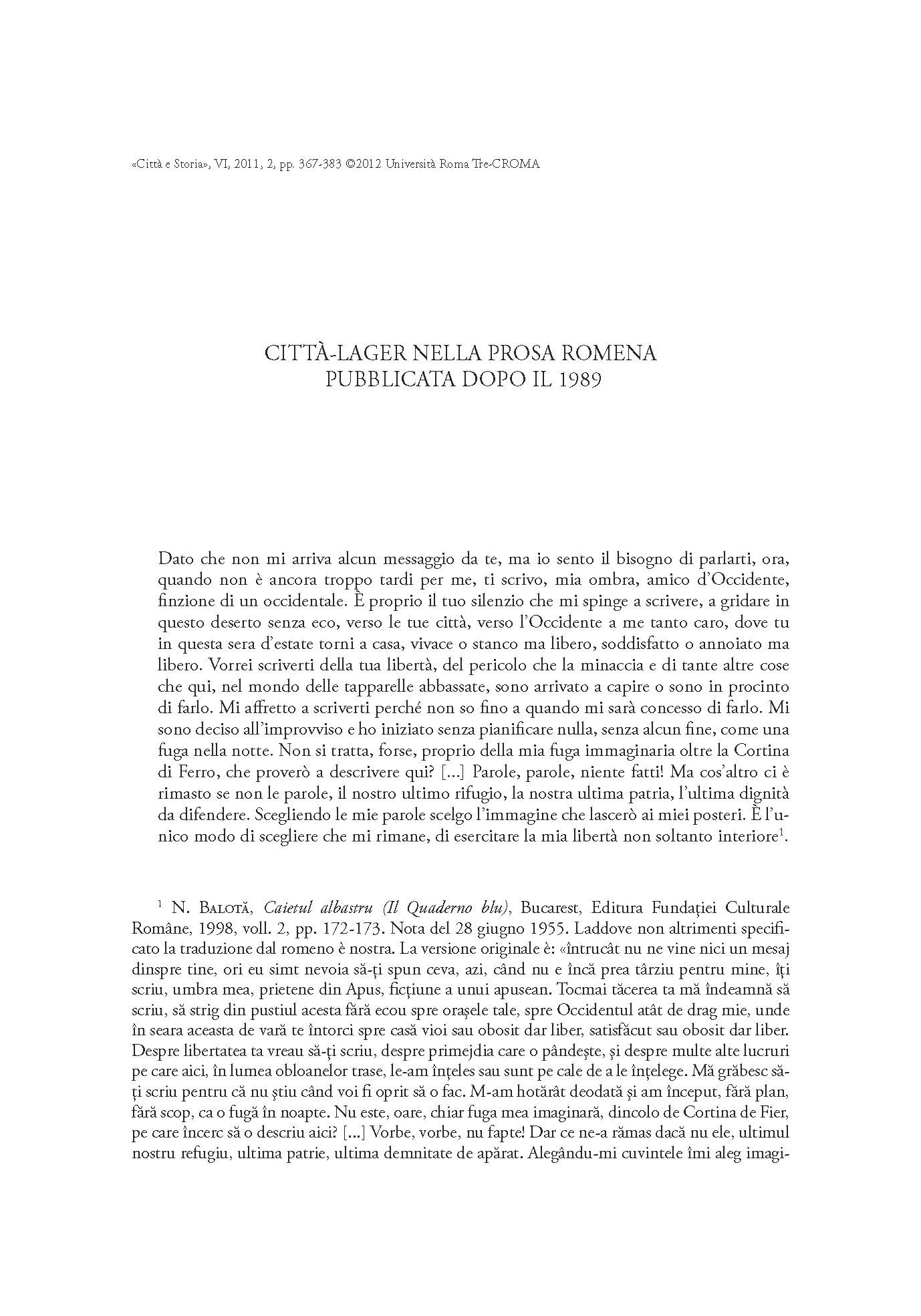Città-lager nella prosa romena pubblicata dopo il 1989
6,00 €
Relation with space has always played a fundamental role in the laborious and continuous construction of Romanian cultural identity. Spatial landmarks suspended between reality and imaginary have been assigned multi-functional tasks such as to legitimize the perception of a prestigious national identity, to compensate the lack of a glorious historical past. Cities like Rome, Byzantium, Paris have been elected by Romanian culture as ideal spaces of reintegration to which relating itself. In the 2nd half of 20th century the communist régime tried to destroy those paradigmatic models, especially the western one, but many intellectuals went on clinging to the legitimizing spaces of Romanian identity. Some of them managed to reach those emblematic lands through expatriation. The others, who chose to remain inside the space controlled by the dictatorship, just relied on imagination in order to create places they could belong to meanwhile witnessing how their country was becoming a prison-space. The literary testimony of intellectuals feeling exiled in their own cities, in their own homes who were able to escape, to overpass those lands of perdition by recollection, reading and reflection or experiencing them by applying to mere fiction, acquires peculiar artistic and ethical implications we try to reveal using critical approaches belonging to thematology combined with the new hermeneutical horizons disclosed by imagology and history of mentalities studies.
Relation with space has always played a fundamental role in the laborious and continuous construction of Romanian cultural identity. Spatial landmarks suspended between reality and imaginary have been assigned multi-functional tasks such as to legitimize the perception of a prestigious national identity, to compensate the lack of a glorious historical past. Cities like Rome, Byzantium, Paris have been elected by Romanian culture as ideal spaces of reintegration to which relating itself. In the 2nd half of 20th century the communist régime tried to destroy those paradigmatic models, especially the western one, but many intellectuals went on clinging to the legitimizing spaces of Romanian identity. Some of them managed to reach those emblematic lands through expatriation. The others, who chose to remain inside the space controlled by the dictatorship, just relied on imagination in order to create places they could belong to meanwhile witnessing how their country was becoming a prison-space. The literary testimony of intellectuals feeling exiled in their own cities, in their own homes who were able to escape, to overpass those lands of perdition by recollection, reading and reflection or experiencing them by applying to mere fiction, acquires peculiar artistic and ethical implications we try to reveal using critical approaches belonging to thematology combined with the new hermeneutical horizons disclosed by imagology and history of mentalities studies.

